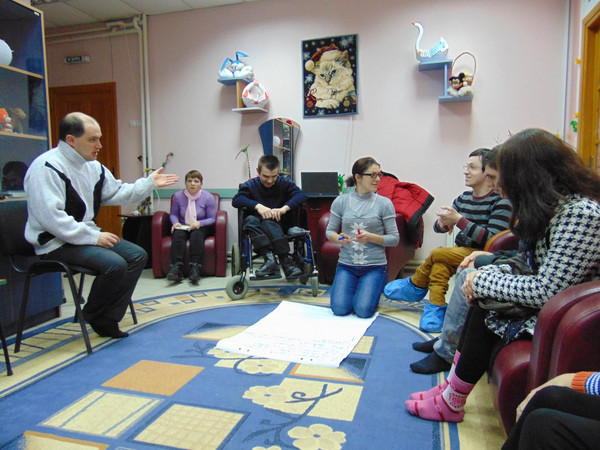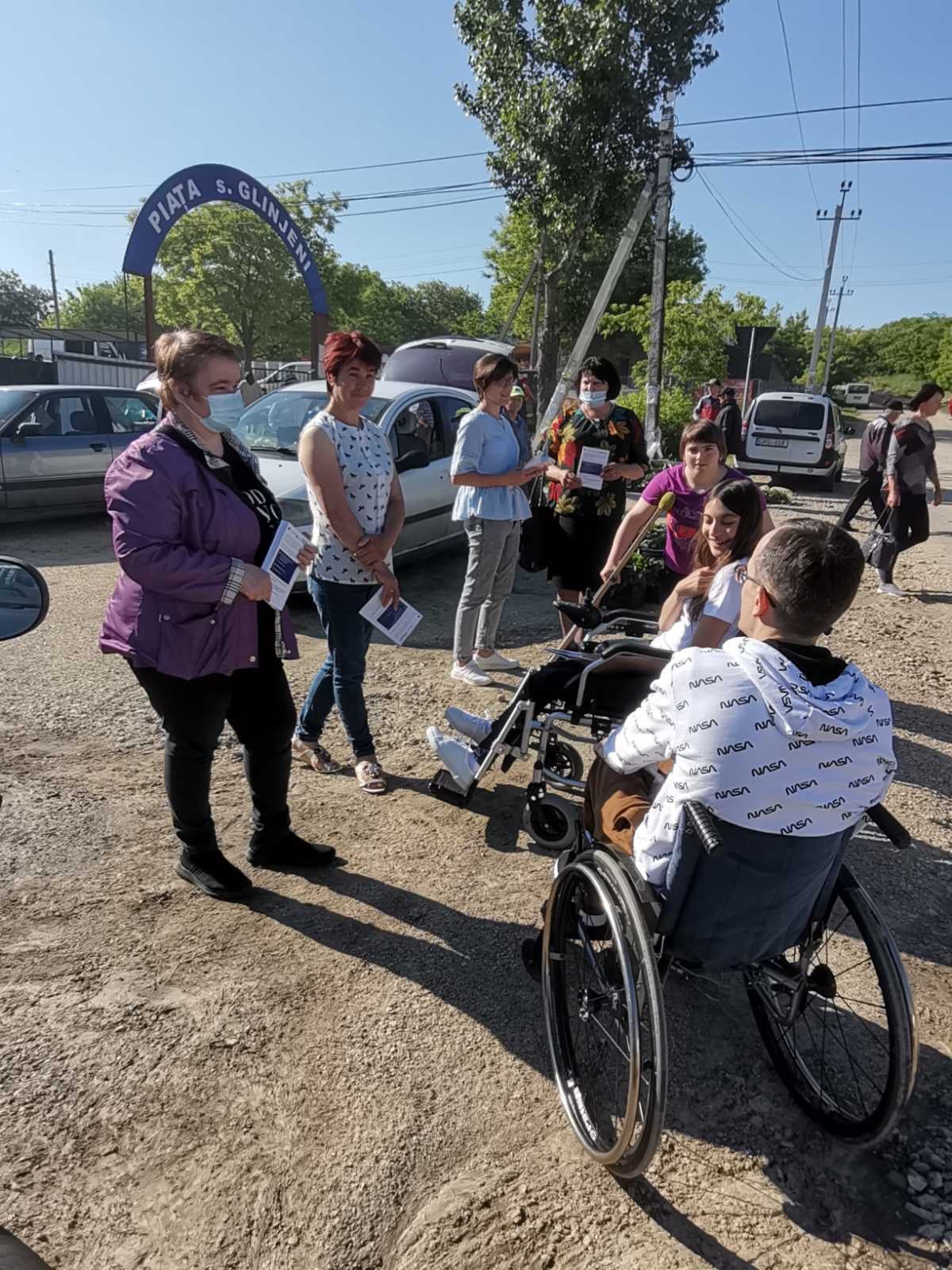Self-advocacy for better inclusion

Name of practice: Self-advocacy for better inclusion
Organisation: Keystone Human Services International Moldova Association
Description of the organisation: Taking a rights-based approach, Keystone Moldova promotes inclusion, builds sustainable community-based support systems, and advocates alongside people with disability. We support: (I) the deinstitutionalization and inclusion in mainstream community-based services; (II) the development of community-based alternative social care services; (III) the development of legal framework to ensure the sustainability of reforms in social protection and social assistance of people with disability; (IV) activities to prevent and end discrimination.
Country: Chisinau, Republic of Moldova
Year of Initiation: 2014
Funding: Donor organisations
Link to UNCRPD: Article 5 – Equality and non-discrimination, Article 29 – Participation in political and public life
Description of practice:
Keystone Moldova promotes inclusive communities through empowering people with disabilities to be self-advocates so that they may fully participate in all aspects of society. As a result, in 2014, with the support of Keystone Moldova, the first self-advocacy group was developed by persons with intellectual disabilities who had recently moved out of a residential institution into the community. Since then, approximately 150 people with disabilities have joined self-advocacy groups across 15 districts in Moldova.
Problem Targeted:
According to national data, 179,000 persons with disabilities live in the Republic of Moldova, representing 5% of the total population. Despite recent progress by Civil Society Organisations and the Moldovan government, these individuals continue to be underrepresented and discriminated against. Although there are laws which uphold the rights of people with disabilities, they continue to be excluded from decision making processes. Additionally, people with intellectual and developmental disabilities often lack the knowledge and confidence necessary to hold legislators and other officials accountable for decisions and policies that impact their lives.
Solution Offered:
Keystone Moldova has developed an empowerment programme for persons with disabilities aimed at building the capacity of self-advocates to speak up for their rights. The self-advocacy groups are composed of persons with different disabilities aged 18-35 from a range of different backgrounds. Each self-advocacy group is assisted by a support person who has been trained in working with self-advocates. The empowerment programme includes trainings on equality, self-determination, advocacy, and awareness-raising which are designed to help self-advocates increase their skillset in applying advocacy tools to solve key issues.
Advocacy tools developed by the participants cover a wide range of topics including writing petitions, public consultation, and public debates, organising protests and press conferences. As part of their work as self-advocates, these groups aim to raise awareness among the public on the rights of persons with disabilities through mass media, theatre forum performances, flash mobs and awareness lessons in schools.
Impact generated by the practice:
Since 2016, 150 persons with disabilities have joined self-advocacy groups covering 15 districts nationwide. Many of these advocates have uncovered great benefits from the programme, with 23% of individuals now involved in income-generating activities, 21% now able to access healthcare services, 60% benefitting from informal/formal education and 3% regaining their rights to social assistance benefits.
Self-advocates who used to live in residential care facilities, deinstitutionalized with Keystone Moldova support, act as peer-supporters for those who are still in institutions and are hesitant to move into the community. These self-advocates have consulted on several policies, including local strategies for social inclusion of people with disabilities, national programmes for social inclusion of people with disabilities and the monitoring of accessibility of public infrastructure in several districts.
Sustainability of the practice:
Self-advocates contribute to changing perceptions of persons with disabilities among the general population in Moldova, as documented in sociological studies, social media statistics, and TV and radio products. Furthermore, many of those involved have engaged in European and international events becoming part of the global self-advocacy movement.
Moldovan self-advocates became members of the Inclusion International, joined key national and international events to terms of promote the rights of persons of disabilities in accordance with the UNCRPD and can therefore continue to advocate for these rights as part of the international network. The knowledge and experience gained at both national and international levels push these self-advocates to continue to act as agents of change.
Contact Information: Natalia Cojocaru, Project Coordinator: Ncojocaru@khs.org


